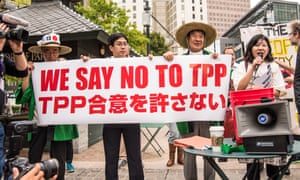A diplomacia brasileira e o comércio internacional
Paulo Roberto de Almeida
[Objetivo: Palestra online para estudantes de economia]
Sumário:
1. O Brasil e o comércio exterior: características básicas em perspectiva histórica
2. As políticas comerciais brasileiras da era bilateral ao Gatt e aos blocos comerciais
3. Mercosul, Rodada Uruguai, Rodada Doha e os impasses atuais
4. O acordo Mercosul-UE e seu provável bloqueio temporário
5. Quais políticas comerciais para o Brasil e para o Mercosul?
1. O Brasil e o comércio exterior: características básicas em perspectiva histórica
O Brasil sempre foi, continua sendo, atualmente, e provavelmente vai continuar sendo, no futuro previsível, um dos maiores países protecionistas do mundo, comprovadamente. Não só mediante tarifas altas, mas também todo um conjunto de medidas restritivas, introvertidas e dirigistas, ao longo da história. A partir dos anos 1970, depois de certa concentração em alguns poucos parceiros preferenciais, o Brasil diversificou suas exportações para um número expressivo de países, a despeito de ter uma pequena participação no comércio internacional, na faixa de 1% do comércio global. Até a era Lula, o comércio era relativamente bem equilibrado e repartido aos quintos para as grandes regiões do planeta. Neste século, a China avançou na sua participação e desde 2009 se tornou o primeiro, e de longe o principal, parceiro comercial, assim como o principal provedor de saldos comerciais, a despeito de uma assimetria profunda nos fluxos de parte e outra.
Em 2018 e em 2019, o volume total de comércio com a China (incluindo HK e Macau) foi de 66 bilhões de dólares aproximadamente, ao passo que o comércio com os EUA foi de apenas 28 e 29 bilhões, ou seja, menos da metade, sendo que com os EUA o Brasil ostenta, desde muitos anos um déficit considerável, ao passo que com a China, o saldo favorável ao Brasil é de mais da metade do volume total. Nesses mesmos anos, o volume de comércio total com a União Europeia, foi reduzido de 42 a 35 bilhões de dólares, e o volume de comércio total com o Mercosul reduziu-se igualmente, de 20 para 14 bilhões de dólares, com saldo brasileiro, mas o grosso do volume é com a Argentina, também responsável pela queda. Canadá e México reunidos respondem por cerca de 8 bilhões de dólares de volume total de comércio, um pouco mais do montante dos países da Comunidade Andina de Nações. A Ásia no seu conjunto, excluindo o Oriente Médio, responde por cerca de 100 bilhões de dólares do comércio exterior brasileiro, que nesses dois anos referidos, ascendeu a 240 e a 225 bilhões de dólares.
2. As políticas comerciais brasileiras da era bilateral ao Gatt e aos blocos comerciais
Descrevi todas as políticas comerciais brasileiras nestes livros:
Formação da diplomacia econômica no Brasil: as relações econômicas internacionais no Império (3ª edição; Brasília: Funag, 2017; 2 volumes; 964 p.; ISBN: 978-85-7631-675-6); Relações internacionais e política externa do Brasil: a diplomacia brasileira no contexto da globalização (Rio de Janeiro: LTC, 2012, 309 p.; ISBN 978-85-216-2001-3); O Brasil e o multilateralismo econômico (Porto Alegre: Livraria do Advogado Editora, na coleção “Direito e Comércio Internacional”, 1999, 328 p.; ISBN: 85-7348-093-9).
3. Mercosul, Rodada Uruguai, Rodada Doha e os impasses atuais
Tenho diversos ensaios sobre essas questões, assim como nestes livros:
O Mercosul no contexto regional e internacional (São Paulo: Edições Aduaneiras, 1993, 204 p.; ISBN: 85-7129-098-9); Mercosul: Fundamentos e Perspectivas (São Paulo: Editora LTr, 1998, 160 p.; ISBN: 85-7322-548-3).
Existem muitos outros textos neste link de Academia.edu:
e mais recentemente neste ensaio:
“O Brasil e os projetos de integração regional: passado, presente e futuro”, nas plataformas Research Gate (link: https://www.researchgate.net/publication/343808733_O_Brasil_e_os_projetos_de_integracao_regional_passado_presente_e_futuro) e Academia.edu (link: https://www.academia.edu/43917653/O_Brasil_e_os_projetos_de_integracao_regional_passado_presente_e_futuro).
4. O acordo Mercosul-UE e seu provável bloqueio temporário
Uma única observação: dificilmente esse acordo vai entrar em vigor durante a presidência Bolsonaro, basicamente em função da obra destruidora no meio ambiente, ataques a líderes estrangeiros, a jornalistas, e desrespeito em matéria de liberdades democráticas e de direitos humanos.
5. Quais políticas comerciais para o Brasil e para o Mercosul?
Desafio da China, que se tornou o primeiro parceiro comercial da Argentina, como já é de diversos outros países latino-americanos. Ou seja, a Argentina sai, pela primeira vez em mais de 30 anos, da chamada “Brasil dependência” que dominou o cenário comercial no Cone Sul desde o nascimento do Mercosul. Nas condições atuais de falta de diálogo entre as administrações do Brasil e da Argentina parecem existir poucas possibilidade de se discutir seriamente as grandes linhas das reformas no Mercosul – na sua TEC, na agenda regulatória – com o objetivo de enveredar por políticas de abertura econômica e de liberalização comercial dentro do bloco e com todos os demais parceiros.
Política comercial americana: a exacerbação do protecionismo, do mercantilismo, das ilegalidades unilaterais americanas. Trump cometeu arbitrariedades contra o sistema multilateral de comércio, contra a própria economia americana: denúncia do TPP, abandono de um acordo transatlântico com a UE, denúncia do NAFTA e de outros acordos de livre comércio; aplicação abusiva e ilegal de salvaguardas comercial, contra a China, contra os próprios parceiros do NAFTA, e terceiros países (como o Brasil), não apenas em aço e alumínio, mas em uma série de outros produtos também, a pretexto de “segurança nacional”, o que é uma mentira. Revisão do Nafta e acordos bilaterais com o México e Canadá, e adoção de cláusulas de emprego nos EUA, o que vai redundar em custos maiores para as indústrias e os consumidores americanos.
Relação comercial com os EUA: Subserviência geral aos EUA, fez o Brasil abandonar o status de economia de país em desenvolvimento, com benefícios da cláusula de tratamento preferencial e mais favorável (SGP, etc.); ilusão do apoio americano para o ingresso na OCDE (que foi traído logo em seguida, e apenas revertido por causa das eleições argentinas, que colocaram um peronista novamente no poder); acordos em aço foram traídos, igualmente; a nota do Itamaraty e da Economia de 29/08 aceitando as novas reduções (cotas), é vergonhosa, por apoiar as medidas unilaterais dos EUA, e desejar restabelecimento da economia do aço nos EUA (nota sobre expropriação da Petrobras na Bolívia, em 2006); a postura do Brasil não poderia ser mais servil, mas é uma consequência da aceitação já feita, explicitamente, de sanções unilaterais.
Quanto ao Mercosul, não parecem existir condições, no momento, sequer para uma retomada das consultas internas com vistas à reforma da TEC, finalização do livre comércio (açúcar e automóveis), acabamento da União Aduaneira, e sobretudo novas iniciativas de acordos comerciais. Não existe sequer perspectiva de entrada em vigor do Acordo entre o Mercosul e a União Europeia, mas isto exclusivamente em virtude das atitudes do presidente com respeito ao meio ambiente.
Paulo Roberto de Almeida
Brasília, 3743, 28-30 de agosto de 2020



